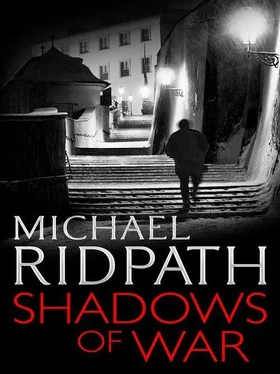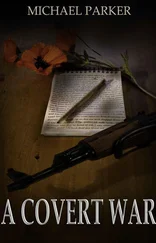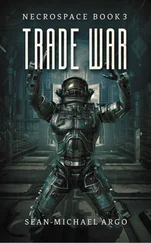Conrad sat in one of two small wooden chairs. It creaked.
‘My name is Conrad de Lancey. I am here to enquire about the murder of my sister, Millicent de Lancey.’
‘I know,’ said the policeman. ‘I suppose you have come to the right place. I am Inspector van Gils, and I am in charge of the investigation.’
‘Good,’ said Conrad, trying a smile. ‘I wonder if you could tell me about her death?’
‘Can you ?’ the policeman said, his brown eyes examining Conrad.
‘What do you mean?’
‘Can you tell me anything about your sister’s death? It’s a reasonable question,’ van Gils said. ‘I am supposed to be investigating it after all.’
The bitter emphasis on the word ‘supposed’ was not lost on Conrad. ‘No. I’m afraid I can’t. I know nothing about it.’
Van Gils’s hand darted into the files in front of him and produced a slim one, which he opened. ‘Is it true you were in the Netherlands two weeks ago?’
‘Yes,’ Conrad admitted. He knew his reluctance to answer was obvious to the policeman.
‘And did you visit the little town of Venlo, in the east of our country, on the ninth of November? Take a little tour through the woods? Stop at a little café?’
‘Yes,’ said Conrad. ‘But I spoke to your colleagues about that.’
‘Not my colleagues. Military intelligence. Believe me, Mr de Lancey, it is not their job to solve murders. But it is mine. Your country and Germany have your war going on, I understand that, but I do not appreciate your use of my town as a substitute for a battlefield, especially when an innocent tourist gets killed. If she was an innocent tourist?’
Conrad didn’t answer.
‘Your sister spoke perfect English and perfect German. She had a French name. As do you, of course. So I suspect neither of you was an innocent tourist. Which is, of course, why you won’t answer my questions. I understand that. What I don’t understand is why I should answer yours.’
‘Actually, I don’t work for the British secret service,’ said Conrad. ‘At least not directly.’
‘So will you answer my questions?’
The policeman had a half-smile on his face. It was clear to Conrad that this was no Dutch military intelligence stooge. Nor was he a Gestapo or Abwehr agent, and he didn’t work for Stevens or the British secret service. He was just a detective trying to do his job, and his job was finding out who killed Millie on his patch.
‘All right,’ said Conrad. He shrugged. ‘Why not?’
The detective’s eyes narrowed. ‘Are you sure?’
‘Yes,’ said Conrad. ‘I’ll answer your questions now. I won’t sign a statement, and I won’t guarantee that I will testify in a criminal court; somehow I think someone will find a way to stop me, don’t you?’
The detective grunted, stubbed out his cigarette in one of the ashtrays, lit another, and as an afterthought offered Conrad one, which Conrad took. He pulled out a torn notebook.
‘Very well. Take me through what you did since you arrived in Holland on the seventh of November.’
Conrad answered all the detective’s questions. Van Gils’s English was good, although Conrad had to pause from time to time to clarify some of his responses. Conrad realized that he was giving away information that was supposed to be secret, but it was information that he was pretty sure both the British and German intelligence services knew already, as did the Dutch probably. He told van Gils about meeting Theo in Leiden, then about travelling to Venlo with Payne Best, Stevens and Klop, about the kidnapping of the British agents, about his return to Holland to see Theo again, and his travel onwards to Paris to check up on one of Theo’s agents. Van Gils didn’t ask him to be specific about the agent, or about the peace negotiations, and so the issue of plots to overthrow Hitler, real or fake, didn’t come up.
The detective asked some questions about Constance Scott-Dunton: who was she, what was her relationship with Millie, why were they travelling together? Conrad told van Gils what he could, including that Constance was a friend of Sir Henry Alston, who was an ally of his father in the quest for peace with Germany.
Then Conrad asked something himself. ‘Why all these questions? I thought you had evidence that Millie’s killer was Theo von Hertenberg.’
Van Gils snorted. ‘It all depends what you call evidence.’
‘What do you call evidence?’ Conrad asked.
The detective took a pull at his cigarette, examining Conrad. ‘You really don’t know much about all this, do you?’
‘No,’ said Conrad.
‘Well. Firstly, Mrs Scott-Dunton says she saw Hertenberg heading towards the tram stop from the sand dunes a few minutes after she had discovered Millie’s body. She was confident, and seemed to have convinced my military intelligence colleagues, but not me. She might have seen someone who looked a lot like Theo, but she cannot be certain it was him.’
‘But then another witness came forward?’ said Conrad.
‘Yes. A walker says he saw Theo hurrying through the dunes with blood on his hands.’
Conrad’s heart sank. ‘That sounds convincing. Constance told me Theo had arranged to meet Millie in the dunes that morning.’
‘It doesn’t sound convincing to me,’ said the inspector. ‘I haven’t interviewed the walker — I wasn’t allowed to — I just have a copy of his statement.’ Van Gils reached into the file and extracted a sheet of paper. ‘A Mr Frank Donkers. He’s not a local, he’s from Eindhoven. Apparently it was only after he returned home that he heard about the murder and got in touch with us, which explains the delay in coming forward. Or it’s one explanation.’ Van Gils snorted. ‘And that detail about his hands being covered with blood. Really! I think Mr Donkers has been watching too many Shakespeare plays.’
‘You said that’s one explanation. What might another be?’
‘It took them a day or two to manufacture him.’
‘“Them”? Who are “them”?’
‘I don’t know. Our people. Your people. Maybe even the Germans’ people.’
‘But why would they manufacture evidence?’
‘Who knows?’ said van Gils. ‘Perhaps it was just convenient to blame the German secret service, and then diplomatically forget what happened. I don’t know. But I do know that Hertenberg being the murderer does not fit with the one piece of hard evidence we do have.’
‘Which is?’
Van Gils puffed at his cigarette, clearly turning over in his mind whether to pass on to Conrad what he knew.
Conrad waited as the detective stubbed out his old cigarette and lit the fifth of the interview.
‘The knife in your sister’s chest,’ he said at last.
‘It had fingerprints on it?’ Conrad asked.
The inspector shook his head. ‘No, it was wiped clean. But an identical knife had been taken the day before from the kitchens of the Hotel Kurhaus, where both your sister and Mrs Scott-Dunton were staying.’
‘Really?’ said Conrad. ‘Is that why you were asking me about Constance?’
‘Absolutely. It certainly raises questions about her. Did she have a motive? Did she dislike your sister? Was she jealous of Hertenberg? Constance mentioned that Millie and Hertenberg had some kind of romantic attachment.’
Conrad shrugged. ‘I really don’t know. I have no reason to think so. Did you question Constance?’
‘Oh, yes. She denied all knowledge of the knife, which was hardly surprising.’
‘Could someone else have taken the knife from the kitchens?’
‘It seems unlikely that a professional spy like Hertenberg would do that. He would have his own knife, one would think.’
‘Unless he was trying to put blame on Mrs Scott-Dunton?’
Читать дальше












